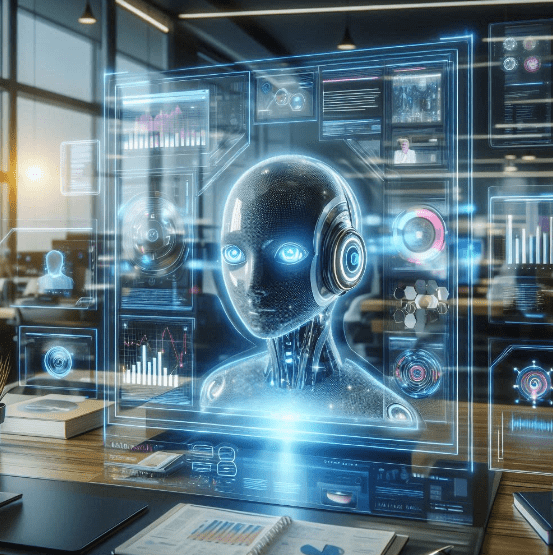
As artificial intelligence (AI) continues to evolve, tech giants like Apple and Microsoft are leading the charge with their advanced AI copilots, reshaping how we interact with our devices. With Apple’s iOS 18.1 and Microsoft’s latest Copilot upgrade, we are witnessing the beginning of a new era of highly intuitive, AI-driven tools that are designed to assist us in ways we could only imagine a few years ago. Let’s dive into the latest developments and what they signify for the future of intelligent assistants.
Apple’s iOS 18.1 and the Introduction of “Apple Intelligence”
Apple’s upcoming iOS 18.1 update, set to launch later this month, introduces a suite of AI-powered tools dubbed “Apple Intelligence.” These tools are designed to make everyday tasks smarter and more efficient. With a focus on enhancing Siri’s capabilities, Apple Intelligence will include features like transcribing phone calls, summarizing audio notes, rewriting and proofreading text, and prioritizing emails.
One of the most exciting updates is the ability to remove objects from photos and create movies automatically using AI. This functionality signals Apple’s move toward leveraging AI to simplify creative tasks that traditionally required time and technical expertise.
Notably, these features are initially available only on specific Apple devices, like the iPhone 15 Pro, iPhone 16, and certain M-series iPads and Macs. Apple is taking a gradual approach to roll out, offering the beta version of iOS 18.1 to users who join the Apple Intelligence waitlist. Although many of these tools are expected to evolve over the coming months, their impact will be felt across the productivity, photography, and even entertainment sectors(
Engadget).
Ethical Concerns: When AI Gets Too Real
While AI’s potential is undeniable, it also raises ethical concerns, particularly when it comes to mimicking human behavior. A recent controversy involving Character.ai highlights these concerns. A chatbot on the platform mimicked a young woman who had been tragically murdered, sparking a public outcry from the victim’s family. The incident underscores the importance of regulating AI technologies to prevent misuse and ensure that they are used responsibly.
As AI continues to blur the lines between the digital and real world, companies will need to tread carefully to avoid ethical pitfalls. This controversy serves as a reminder of the balance that must be struck between innovation and ethical responsibility(
Engadget).
Microsoft’s AI Copilot: The Power of Voice and Real-Time Analysis
On the other side of the AI spectrum, Microsoft is making waves with its Copilot assistant. Initially introduced as an AI-driven writing aid in Microsoft Office, Copilot has undergone significant upgrades, including a more human-like voice and real-time web page analysis. These advancements make Copilot a robust tool for both business and personal use.
One of Copilot’s standout features is the “Copilot Daily” update, which provides a 30-minute summary of global events, making it easier than ever to stay informed without wading through endless articles and social media updates. Copilot is also capable of analyzing documents and extracting key information in real time, which is invaluable for professionals handling large volumes of data(
Engadget).
By integrating voice capabilities and real-time data processing, Microsoft has positioned Copilot as more than just a virtual assistant—it’s a powerful AI-driven partner capable of enhancing productivity, efficiency, and informed decision-making.
Cloud Computing and AI: A Symbiotic Relationship
Behind the scenes of these advancements in AI is cloud computing, which provides the necessary infrastructure for training and deploying AI models at scale. Cloud platforms allow AI researchers and developers to access vast amounts of computational power without the need for expensive on-premise hardware.
As AI continues to develop, its reliance on cloud computing will only grow. Companies like Amazon Web Services (AWS), Google Cloud, and Microsoft Azure are playing a pivotal role in enabling smaller organizations and startups to leverage cutting-edge AI technologies without breaking the bank. This partnership between AI and cloud computing is accelerating innovation across industries, from healthcare to finance, retail, and beyond.
The Future of AI Assistants: What to Expect
With Apple’s focus on photography, writing, and productivity enhancements, and Microsoft’s advancements in real-time analysis and communication, AI assistants are set to become indispensable tools in both our personal and professional lives.
The next wave of AI advancements may include even more intuitive voice assistants, deeper integration with cloud-based services, and improved contextual awareness. For instance, future versions of Siri and Copilot may be able to predict user needs, schedule tasks automatically, or even suggest actions based on prior behavior.
As we move forward, one thing is clear: AI copilots are here to stay, and their impact on productivity, creativity, and daily life will continue to grow.


